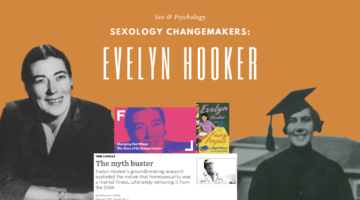College Students Don’t Need To Be Protected From Sex Studies
May 23, 2016 by Justin Lehmiller
Before a scientific study is carried out, researchers usually need to receive approval from an Institutional Review Board (IRB), a body of fellow scientists who evaluate a given study’s potential risks and rewards. In the name of protecting research participants, IRBs often given studies focusing on “sensitive topics” heightened scrutiny.
Sex is often considered to be a sensitive topic, and many researchers (myself included) have encountered difficulties at one time or another in getting certain studies approved because their IRBs are concerned that students might be traumatized by certain kinds of sex questions (e.g., how would students who have been sexually victimized feel if they were asked questions about prior experiences with rape and sexual assault?).
Fortunately, research suggests that college students are more resilient than IRBs have given them credit for. As some evidence of this, a 2012 study published in Psychological Science found that students who completed sex surveys did not experience elevated levels of psychological distress afterward compared to students who completed other cognitive tasks.
In fact, students actually reported feeling less distressed after completing a sex survey than they did beforehand. Furthermore, they rated this experience as less stressful than a number of ordinary stressors they encounter every day, such as spilling your coffee, having to wait in line, and so forth.
Perhaps most important of all, though, these results held even among persons who reported having been victims of sexual violence—completing a sex survey that included questions about prior victimization experiences didn’t make them feel any worse.
The same team of researchers that conducted this study recently reanalyzed their data to look at whether their findings were consistent across other groups of people. For instance, do reactions to sex surveys depend upon someone’s sex, race, level of religiosity, personality, or baseline level of psychological distress?
The results, recently reported in the Journal of Sex Research, suggest that they don’t.
For the most part, demographic variables (age, race, sex) were unrelated to how participants felt about the sex survey. The only difference they found was that participants of Hispanic ethnicity reported feeling even more positively about the sex survey than White participants.
Personality and psychological variables were largely unrelated to how people felt about the sex survey, too. A few statistically significant associations emerged, though.
For instance, participants high in the personality trait of agreeableness reported more perceived benefits of taking part in the sex study, while those high in the personality trait of neuroticism reported more costs associated with their participation and more negative emotions afterward. However, even those who were very high in neuroticism (specifically, 2 standard deviations above the mean) were still reporting very low levels of costs and distress overall.
In other words, there were some statistically significant differences here, but they weren’t practically significant.
In all, the results of this reanalysis combined with the results of the originally published study suggest that sex surveys pose little risk to college student participants and that sex studies don’t need to be held to an arbitrarily high level of scrutiny.
That said, I should note that these results were based on a survey of students at just one university in the Southwestern United States. Thus, it would be worthwhile to attempt to replicate these results more broadly. For the time being, though, the available evidence suggests that sex isn’t inherently a “sensitive” research topic.
Want to learn more about Sex and Psychology ? Click here for previous articles or follow the blog on Facebook (facebook.com/psychologyofsex), Twitter (@JustinLehmiller), or Reddit (reddit.com/r/psychologyofsex) to receive updates.
Image Credit: 123RF.com
You Might Also Like:

Dr. Justin Lehmiller
Founder & Owner of Sex and PsychologyDr. Justin Lehmiller is a social psychologist and Research Fellow at The Kinsey Institute. He runs the Sex and Psychology blog and podcast and is author of the popular book Tell Me What You Want. Dr. Lehmiller is an award-winning educator, and a prolific researcher who has published more than 50 academic works.
Read full bio >


